President Donald Trump praised the soldiers of the United Kingdom who served alongside the U.S. in Afghanistan on Saturday, clarifying his previous criticism of NATO allies.
Trump had earlier criticized NATO troops who served in Afghanistan, arguing they had stayed ‘a little bit back’ from the frontlines during the conflict. His statement was met with outrage in the U.K., however, where Prime Minister Kier Starmer called it ‘insulting and frankly, appalling.’
‘The GREAT and very BRAVE soldiers of the United Kingdom will always be with the United States of America! In Afghanistan, 457 died, many were badly injured, and they were among the greatest of all warriors,’ Trump wrote on Truth Social.
‘It’s a bond too strong to ever be broken. The U.K. Military, with tremendous Heart and Soul, is second to none (except for the U.S.A.!). We love you all, and always will!’ he continued.
The social media post partially walks back his previous criticism of NATO, made during an interview on Fox Business.
‘We have never really asked anything of them,’ he said. You know, they’ll say they sent some troops to Afghanistan or this or that, and they did. They stayed a little back, little off the front lines.’
Starmer’s office says the prime minister raised the issue with Trump during a phone call this weekend.
‘The Prime Minister raised the brave and heroic British and American soldiers who fought side by side in Afghanistan, many of whom never returned home,’ a spokesperson said. ‘We must never forget their sacrifice.’
Trump’s initial remarks also drew a direct rebuke from Prince Harry, who served two tours in Afghanistan.
‘I served there. I made lifelong friends there. And I lost friends there,’ Harry said.
‘Those sacrifices deserve to be spoken about truthfully and with respect, as we all remain united and loyal to the defense of diplomacy and peace,’ he added.

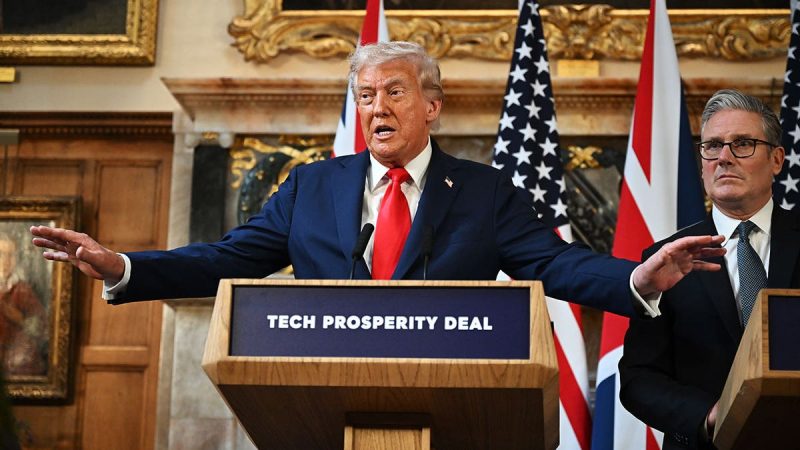

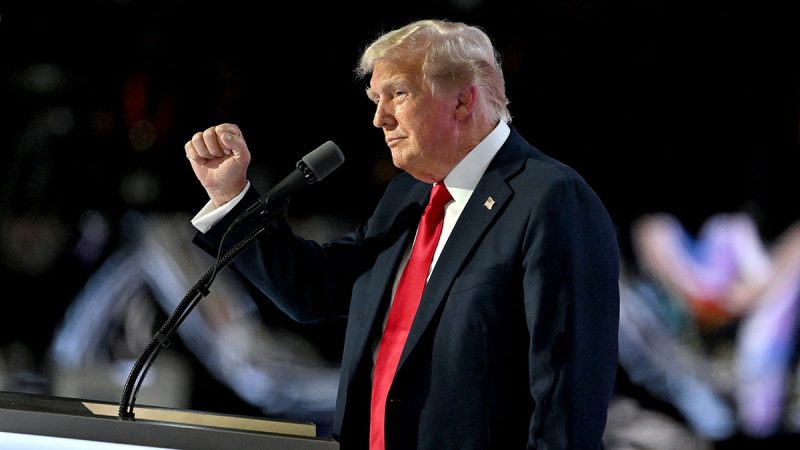


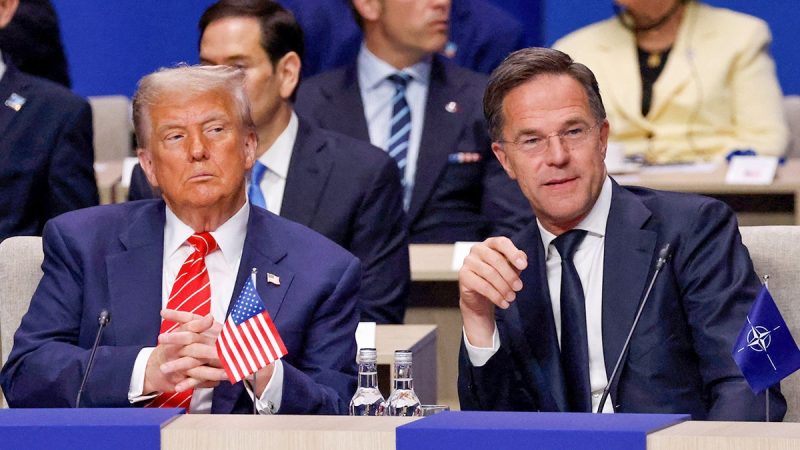
![Former special counsel Jack Smith spent hours publicly defending the parameters of his investigation into President Donald Trump on Thursday in the face of sharp questions from Republicans on the House Judiciary Committee — including one lawmaker in particular who repeatedly accused Smith of ‘spying’ on certain lawmakers.
During one of the most contentious portions of the hearing, Rep. Darrell Issa, R-Calif., pressed Smith over the so-called ‘tolling records’ Smith sought as part of the special counsel investigation, which included investigating Trump’s alleged attempts to subvert the results of the 2020 election.
Unlike wiretaps, tolling records are phone logs that reveal the phone numbers of incoming and outgoing callers, as well as the time and duration of calls. Republicans have zeroed in on the tolling records in recent months, blasting them as an aggressive tactic by Smith and an act of ‘political weaponization,’ which Smith vehemently denied.
Issa, in particular, excoriated Smith for the decision to seek the tolling records of Republicans in the House and Senate — which he said Thursday was tantamount to spying on his political ‘enemies.’
Smith, for his part, defended the tolling records as ‘common practice’ in such investigations.
‘Maybe they’re not your political enemies, but they sure as [heck] were Joe Biden’s poltiical enemies, weren’t they?’ Issa asked Smith. ‘They were Harris’s political enemies,’ he said, referring to the former vice president. ‘They were the enemies of the president — and you were their arm, weren’t you?’
‘No,’ Smith said.
‘So, you spied on the speaker of the House and these other senators and so on, and informed no one — and in fact, put a gag order in — so they couldn’t discover it,’ Issa said.
Smith attempted to respond before Issa continued.
‘Why did Congress, a separate branch that you, under the Constitution, have to respect — why is it that no one should be informed — including the judges?’ Issa pressed. ‘As you went in to spy on these people, did you mention that you were spying on, [that you were] seeking records to you could find out about when conversations occurred between the U.S. Speaker of the House and the president?’
‘Did you inform the judge?’ Issa continued. ‘Or did you hold that back?’
‘My office didn’t spy on anyone,’ Smith said, before Issa cut back in.
‘Wait a second,’ he interjected sharply. ‘The question I asked you, Mr. Smith, was pretty straightforward.’
Before Smith could respond again, the panel’s ranking Democrat, Rep. Jamie Raskin, interjected to address House Judiciary Chairman Jim Jordan.
‘Mr. Chairman, would you please instruct the gentleman to allow the witness to answer the question?’ he said. <i>‘</i>The witness has the right to answer the question.’
Smith previously said that the Public Integrity Section had signed off on the subpoenas, a point corroborated by previously released public records. Those records also showed that the Public Integrity Section told prosecutors to be wary of concerns lawmakers could raise about the Constitution’s speech or debate clause, which gives Congress members added protections.
The subpoenas to the phone companies were accompanied by gag orders blocking the lawmakers from learning about the existence of the subpoenas for at least one year.
Smith previously told the House lawmakers in a closed-door hearing that the D.C. federal court, which authorized the gag orders, would not have been aware that they applied to Congress members.
‘I don’t think we identified that, because I don’t think that was Department policy at the time,’ Smith said.
Asked during the earlier deposition about who should be held accountable for lawmakers who felt that the seizure of a narrow set of their phone data was a constitutional violation, Smith said Trump should be held accountable.
‘These records are people, in the case of the Senators, Donald Trump directed his co-conspirators to call these people to further delay the proceedings,’ Smith said.
‘He chose to do that. If Donald Trump had chosen to call a number of Democratic senators, we would have gotten toll records for Democratic Senators. So responsibility for why these records, why we collected them, that’s — that lies with Donald Trump,’ he said at the time.
This post appeared first on FOX NEWS GOP lawmaker accuses Jack Smith of ‘spying’ on Congress at tense House hearing over Trump probe](https://theinvestmentgodfather.com/wp-content/uploads/2026/01/hearing-arrival-former-department-of-justice-special-counsel-jack-smith-001-800x450-1.jpg)
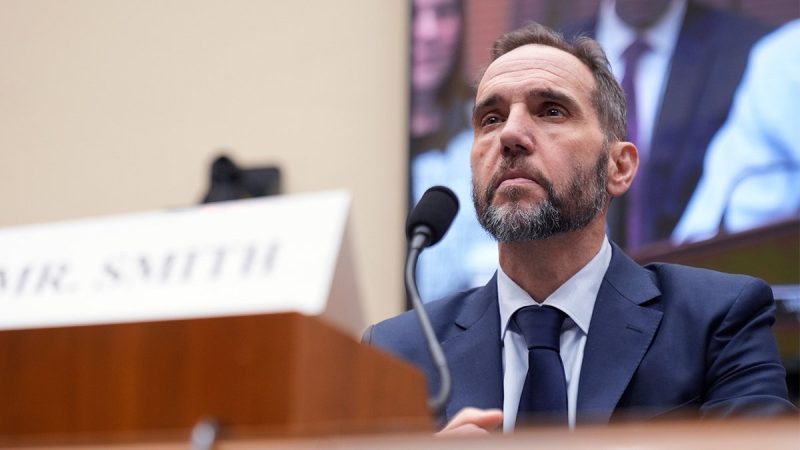
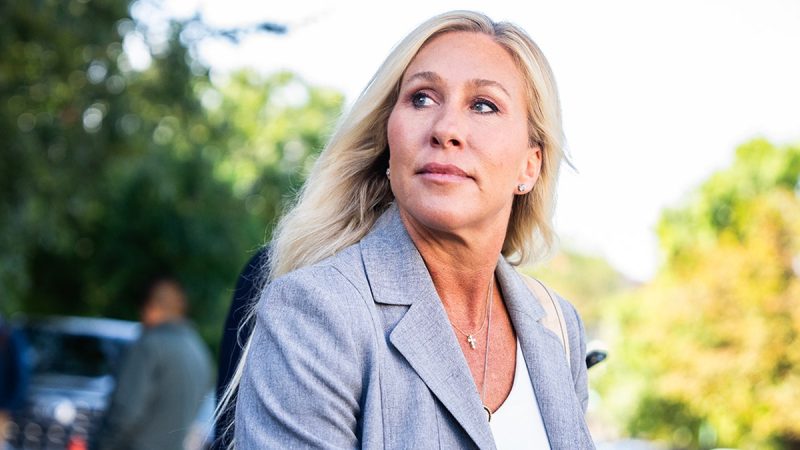
![House Democrats are largely mum about whether they’ll help Republicans advance a pair of contempt resolutions against former President Bill Clinton and former Secretary of State Hillary Clinton on Wednesday.
The House Oversight Committee is meeting at 10 a.m. to weigh a pair of reports on holding the Clintons in contempt of Congress for defying subpoenas in the panel’s Jeffrey Epstein probe. What’s likely to be hours of debate will be followed by votes on whether to tee up those reports as House-wide votes on resolutions referring the former first couple to the Department of Justice (DOJ) for criminal prosecution.
The resolutions are likely to advance, at least along party lines. But two Democrats on the committee who spoke with Fox News Digital on Tuesday were careful to avoid making concrete decisions before the pivotal votes.
‘Right now, we should all be focused on releasing the Epstein files,’ Rep. Ro Khanna, D-Calif., told Fox News Digital. ‘After the files are released, call in the Clintons, and they should testify, as should anyone. But it’s premature to be calling in people to testify when the files haven’t been released.’
Khanna, along with Rep. Thomas Massie, R-Ky., led a successful effort to force a vote on mandating that the DOJ release nearly all of its Epstein files.
The DOJ has yet to produce more than a fraction of the documents, however, more than a month after the deadline set by Congress.
When asked directly how he would vote regarding the Clintons on Wednesday, Khanna said, ‘I would say that they need to come in after the files are released.’
Rep. Suhas Subramanyam, D-Va., a first-term member of the committee, told Fox News Digital when asked how he’ll vote, ‘We’ll see how they’re treating all of the other people who have not complied completely with the committee, because I think what they’ve started doing is making this partisan.’
The Clintons were two of 10 people subpoenaed to appear before the committee after a unanimous committee vote to launch the investigation.
To date, however, just one of those original 10 people — former Trump Attorney General Bill Barr — has appeared in person. Former Trump Labor Secretary Alex Azar was also deposed pursuant to a separate subpoena.
But the Clintons are the only two so far who Republicans have pursued contempt charges against, arguing they have repeatedly refused to work with the committee in good faith on scheduling their depositions. The Clintons’ lawyers said the subpoenas are not legally valid.
‘It should be an interesting hearing, because if they’re going to hold the Clintons in contempt, I’m interested to hear if they’ll hold anyone else in contempt, including Republicans in this administration,’ Subramanyam said.
Multiple requests for comment to the remaining 19 Democrats on the committee went unanswered on Tuesday.
That includes Rep. Robert Garcia, D-Calif., the top Democrat on the committee, who did not attend either of the panel’s scheduled depositions with the Clintons in January.
Rep. Emily Randall, D-Wash., another member of the panel, even waved Fox News Digital off during an attempt to ask about her thoughts on the Clinton contempt effort. She claimed she was engaged in an ‘intense’ conversation with a congressional aide.
Garcia had previously accused House Oversight Committee Chairman James Comer, R-Ky., of hypocrisy in trying to hold the Clintons accountable while not pushing harder to enforce the subpoena aimed at forcing the DOJ to release all of its Epstein files, which it has not yet done.
‘I think it’s incredibly hypocritical for James Comer to go out and try to hold in contempt his political enemies while [Attorney General Pam Bondi] is actively breaking the law, and he refuses to hold her in contempt,’ Garcia told MS NOW last week.
But in his opening remarks ahead of the committee meeting, Comer is expected to argue that it would be Democrats who are acting hypocritical if they do not vote to hold House-wide contempt votes.
‘We’ve offered flexibility on scheduling. The response we received was not cooperation, but defiance, marked by repeated delays, excuses, and obstruction,’ Comer will say, according to remarks obtained by Fox News Digital. ‘Today, the Clintons must be held accountable for their actions. And Democrats must support these measures, or they will be exposed as hypocrites.’
Neither of the Clintons have been implicated in any wrongdoing related to Epstein.
This post appeared first on FOX NEWS Democrats dodge questions as House GOP prepares contempt votes against the Clintons](https://theinvestmentgodfather.com/wp-content/uploads/2026/01/hillary-and-bill-clinton-optimized-800x450-1.jpg)